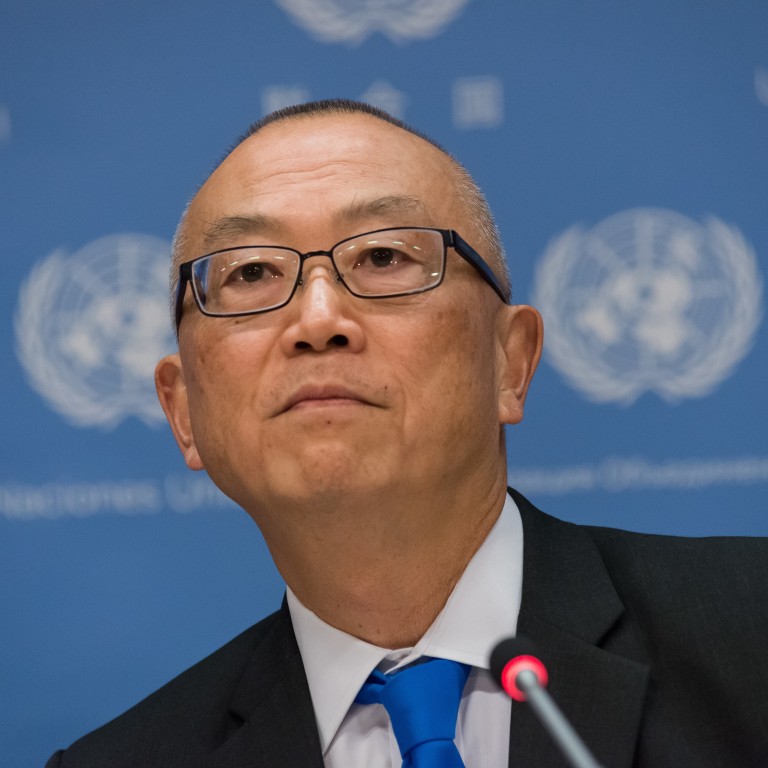
Coronavirus: Trump move to withhold WHO funding could ‘fundamentally weaken’ world’s ability to fight disease, says Hong Kong government adviser
- Professor Keiji Fukuda says countries need to work together in battle against Covid-19
- Head of University of Hong Kong’s school of public health says US president’s move will weaken the country
Professor Keiji Fukuda, who worked as an assistant director general at the WHO before joining the university, made his remarks on Wednesday during an online dialogue session organised by HKU.
“The news is really unwelcome for several different reasons,” Fukuda said. “In the long term it is going to weaken both the US, which fundamentally depends on other countries in terms of addressing health issues. It is also going to fundamentally weaken the world’s ability to deal with these complex issues.”
“The news about potentially withdrawing the funding put that at risk,” said Fukuda, who previously worked in a senior role at the US Centres for Disease Control and Prevention.
He said all countries depended on the WHO for information and perspective in assessing the situation, and developing nations would also need the global health agency for support in policy, materials and pharmaceuticals.
Looking ahead, Fukuda believed the pandemic would bring changes in the future, including an “explosion in research beyond any other kinds of outbreaks”, and a different public attitude towards wearing masks. He also hoped there would be a review into health care systems.
As scientists around the world race to develop a coronavirus vaccine, Fukuda believed between 3 and 4 billion people would need to be vaccinated in the next four to five years, if there was to be “a world which is relatively immune to Covid-19”.

